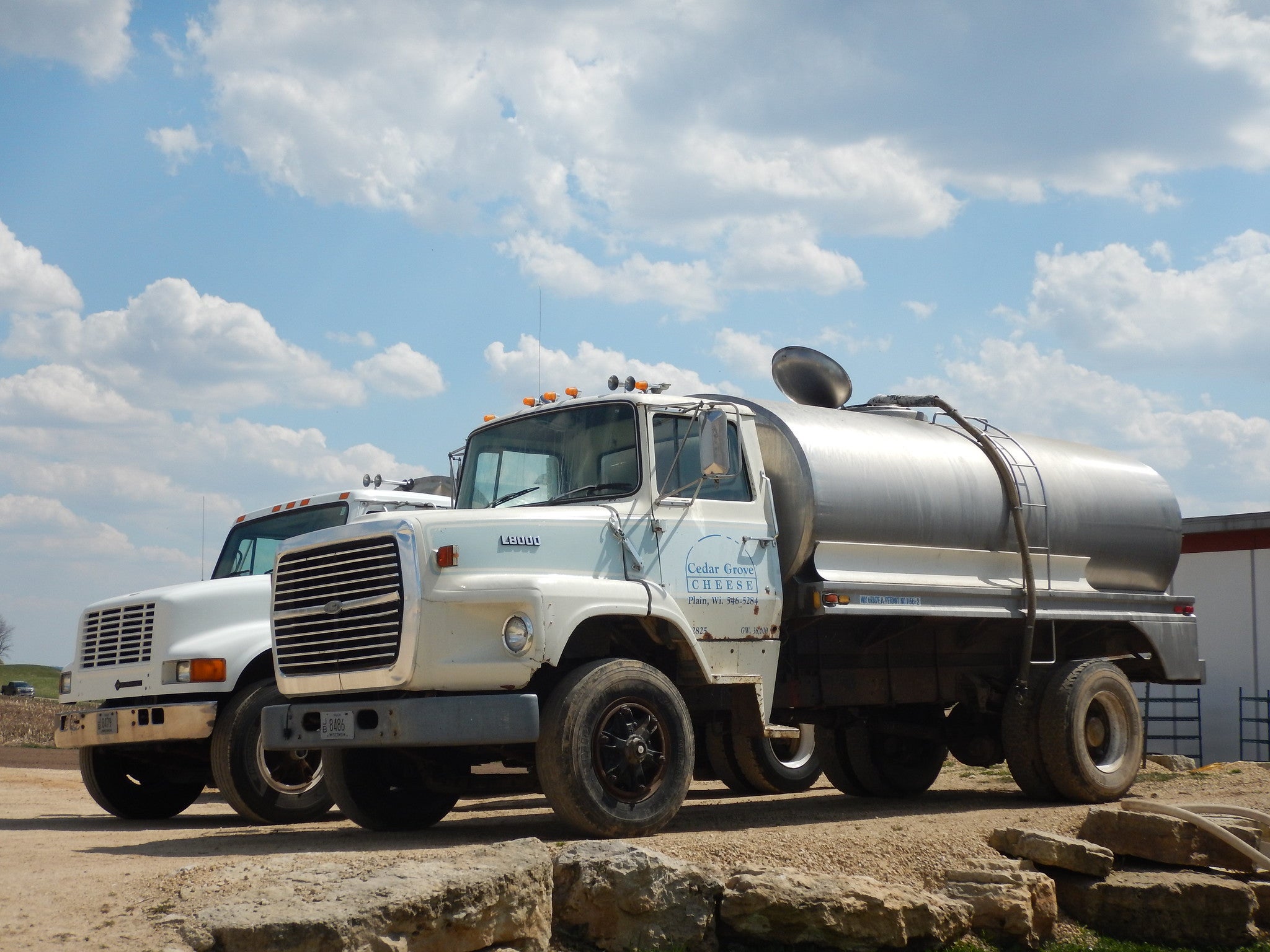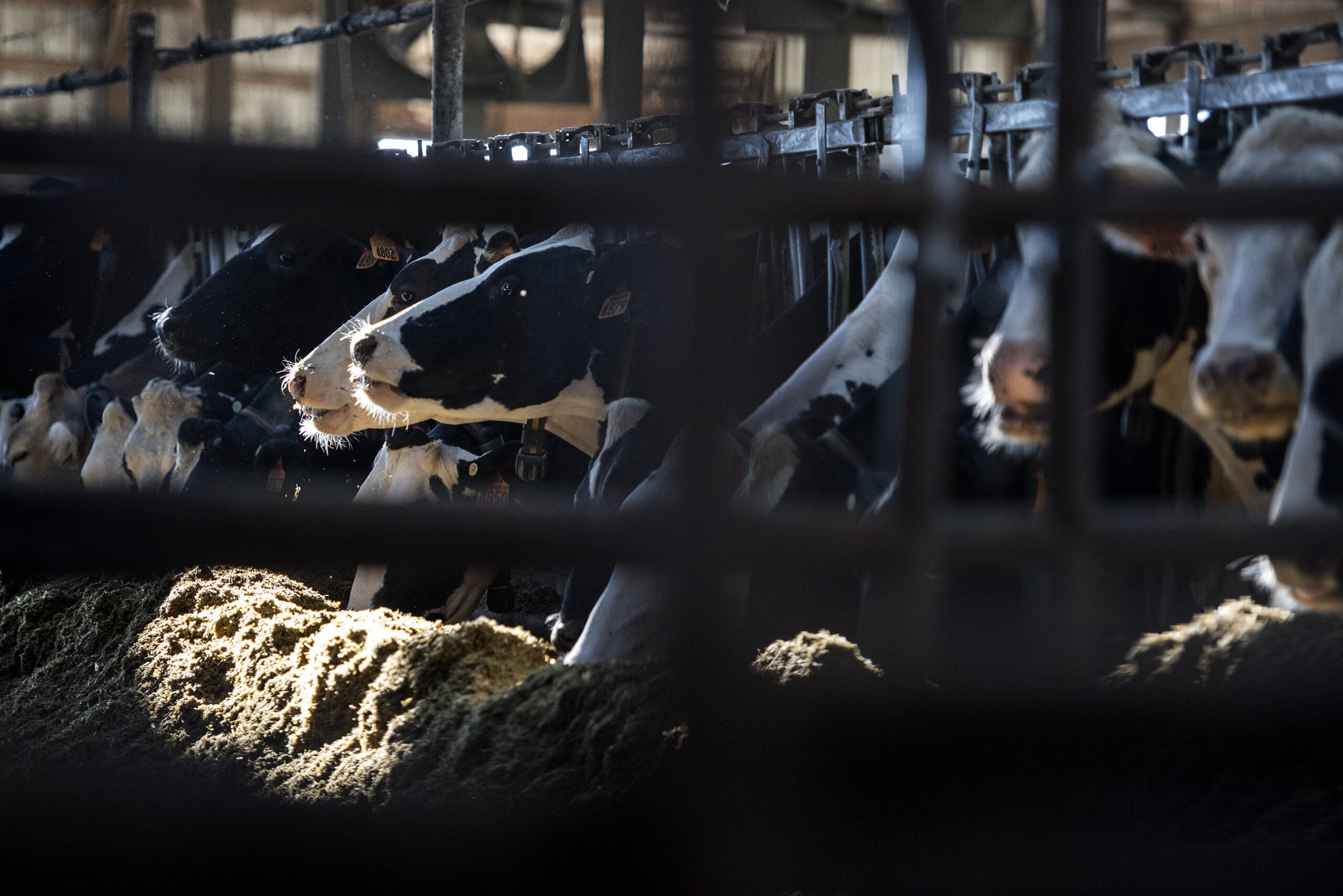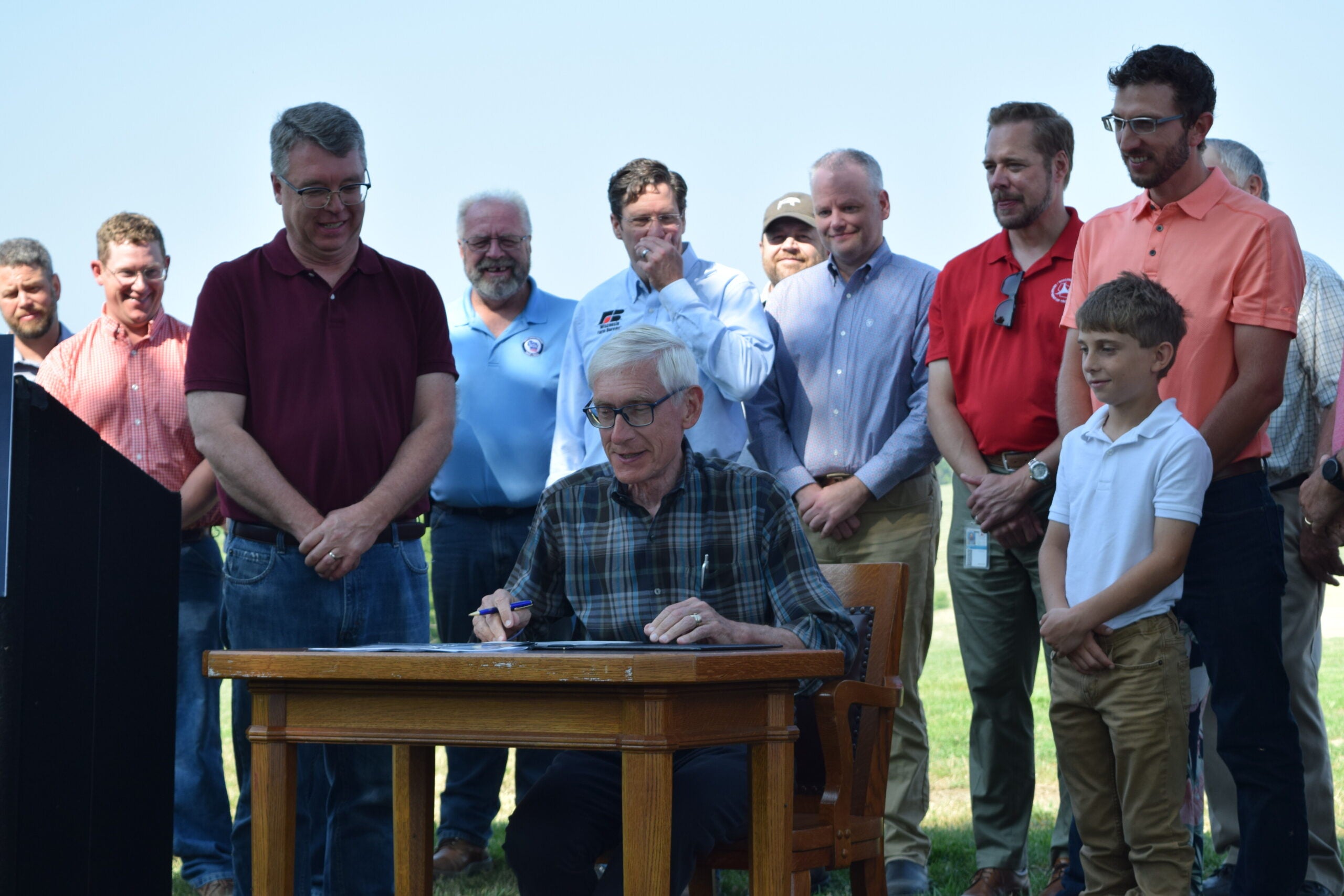Chippewa County Highway Commissioner Brian Kelley said his department has been dealing with excessive damage to county roads caused during the spring thaw in recent years.
Each spring, the ground thaws from the top down and creates a layer of wet soil sandwiched between a road and the still frozen ground beneath. The saturated ground can’t support the weight of heavy trucks, leading to damage to the pavement that can be costly to fix.
That’s why many counties and municipalities use the authority in state law to impose special weight limits on vulnerable roads, what are often called “road bans.”
Stay informed on the latest news
Sign up for WPR’s email newsletter.
Kelley said Chippewa County has road bans in place, but there hasn’t been much effort to enforce them. That’s until the county was forced to spend $1.7 million to repair 7 miles of highway that was destroyed in spring 2021.
“That prompted us to really look into more enforcement and education on the spring road limits,” Kelley said. “Through that process, we learned that milk hauling doesn’t have any statutory exemptions (from weight limits). So in order to be able to enforce the statutes and to request law enforcement to be out there enforcing statutes, we need to be able to provide a permit for the milk haulers in order for them to not get citations.”
After working with a group of local milk haulers and farmers, Kelley’s department created a process for trucks to apply for the county’s oversize or overweight permit, which has an annual fee of $100. He said the permits aren’t typically issued during the spring road ban because of the fragile road conditions. But his department wanted to ensure dairy farms had a way to still operate legally during the season.
But the proposal has caused pushback from several farmer organizations who believe the county is singling out the dairy industry.
Kim Bremmer, executive director of Venture Dairy Cooperative, said enforcing the weight limits on milk haulers could create a number of logistical problems, like forcing trucks to take circuitous routes to avoid road bans between farms or preventing hauling companies from bringing in a backup truck in the event of a breakdown or schedule delay.
She said she believes it was assumed by state lawmakers when the statutes were written that milk trucks would be exempt from the seasonal weight limits because of the prevalence of dairy farms in Wisconsin.
Bremmer said her organization questions whether the statute gives counties the authority to charge a fee for an overweight permit. And she argues the law does allow counties to exempt milk trucks from the seasonal weight limits altogether.
“So is (Chippewa) County doing anything unlawful? No. But it’s not necessarily following the intent of that original law,” she said.
Bremmer said dairy groups are advocating for state lawmakers to create a permanent exemption for milk trucks like the ones for public utility repairs, emergency septic removal and emergency propane deliveries.
In the meantime, she said creating a permit requirement and fee specific to milk haulers doesn’t give drivers and farmers the impression that Chippewa County officials want to support the dairy industry. She said there wasn’t enough effort to consult the industry on a solution without the threat of trucks losing access.
“I think it’s in every county’s best interest to really work with their farms,” she said. “I do think it exposes a more inherent problem which is at the state level: one, fixing the statute and two, focusing on better road funding. And I don’t think that road funding needs to come from one industry.”
Jason Mugnaini, director of government relations for Wisconsin Farm Bureau, said he doesn’t foresee any legislative action on the issue this year. But his organization is concerned that Chippewa County’s new permit requirement will prompt other counties or municipalities to create their own restrictions and permits.
“We don’t want to see a patchwork of requirements across the state, where one county might have a permit that says you can do a certain weight over one axle and then you go to another county that’s adjacent to that county and you have to change your weight requirements,” he said.
Mugnaini said such a system would make it more difficult for any farmer, whether milk or produce, to get their commodity to a production facility and could increase operational expenses and even consumer prices.
After hearing the industry’s concerns in Chippewa County, Kelley said his department is working on a new ordinance to present to the county board that would create a simpler and cheaper permit specific to milk trucks operating in the spring.
He said the few hauling companies that have come in to apply for this year’s permit haven’t had much of a problem with the weight limits set by the county, which Kelley said were based on what haulers said they needed.
“I think there was some misconceptions in some press that was done on this issue that the county was somehow targeting milk or somehow treating them worse than other industries, when really we’re making an exception for milk in the county to be able to continue to haul their loads in the spring,” he said. “But the only process we have in place is to use our oversized load permits. We’re not making that exception for other industries.”
Kelley said the county has to do more to protect roads during the spring thaw, but that enforcement means following state law the way it’s written.
Wisconsin Public Radio, © Copyright 2025, Board of Regents of the University of Wisconsin System and Wisconsin Educational Communications Board.





